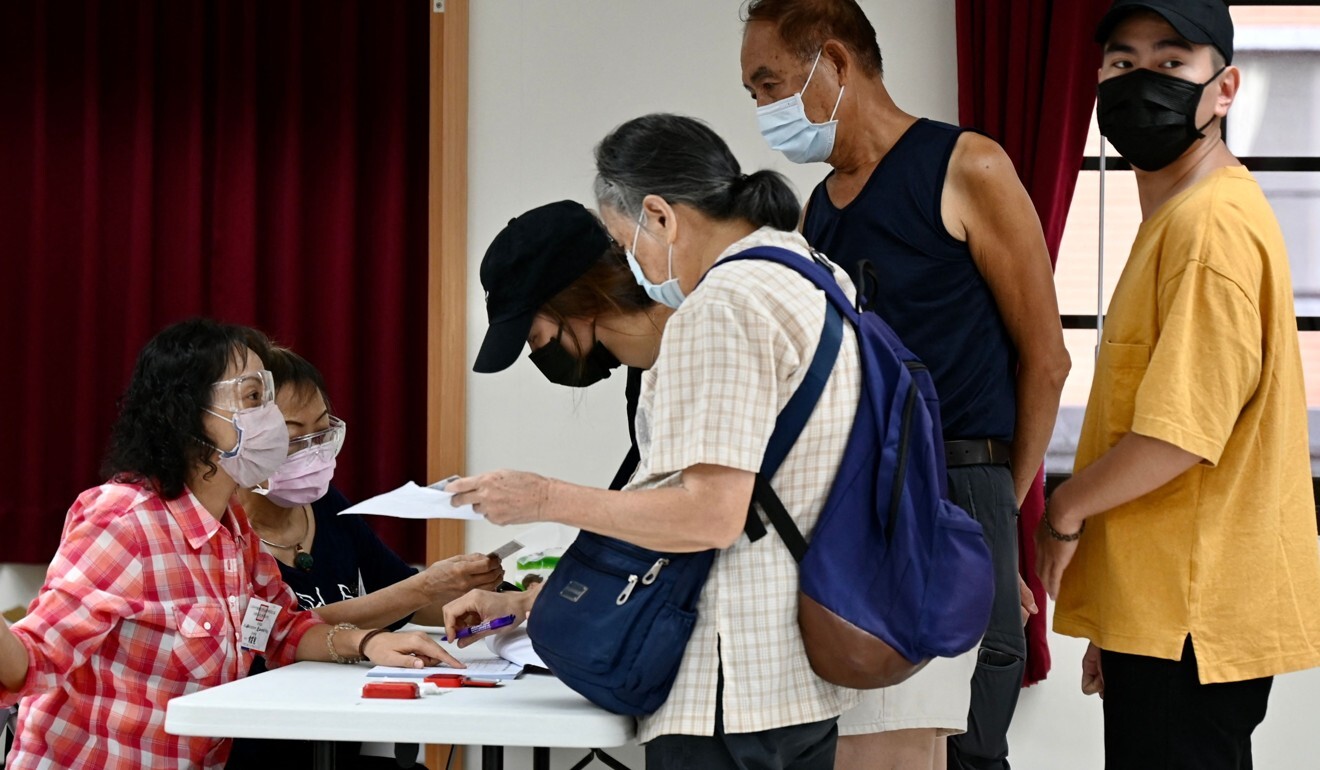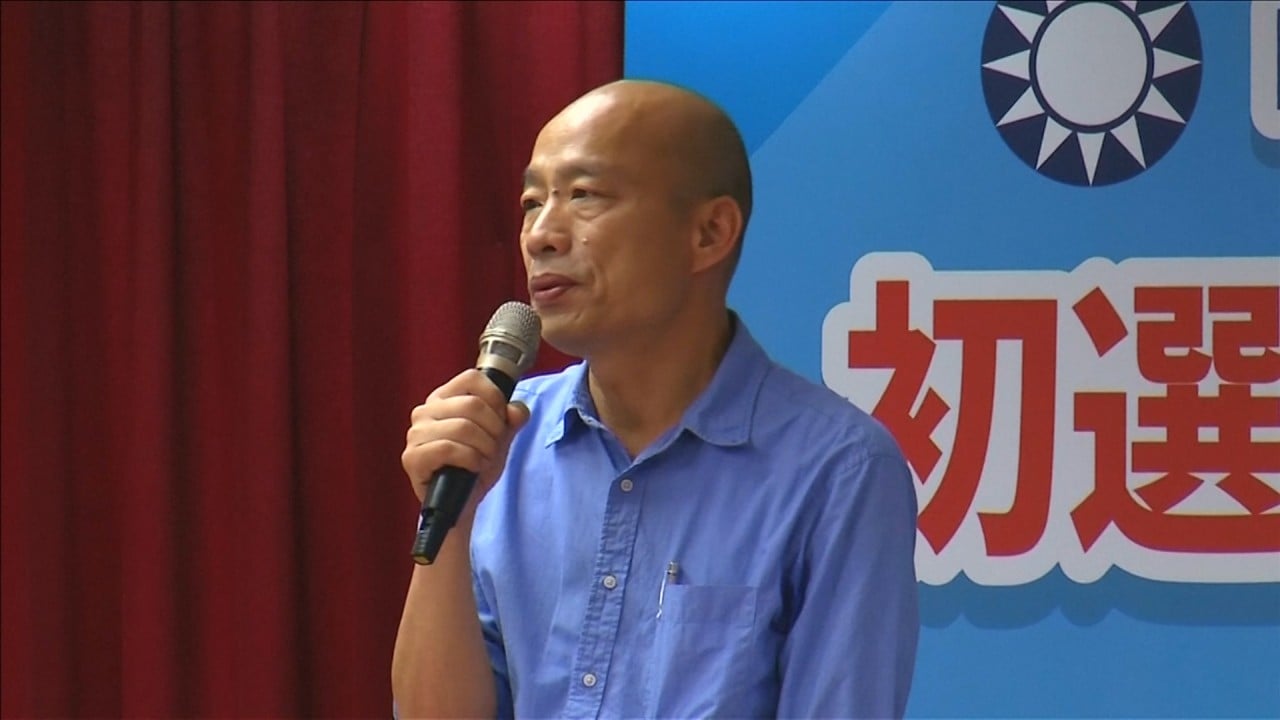
As Taiwan’s KMT votes for new chairman, a moment of cross-strait reckoning
- Result of four-way race will decide whether century-old party stays true to mainland-centric-roots or leans towards a more Taiwan-centric outlook
- Among contenders is a relatively little-known NGO chief, who has impressed hardline ‘deep blue’ members with calls for cross-strait unification

Voting began at 8am, with ballots being cast at 422 KMT polling stations all over the island before the stations close at 4pm. Results are expected by 7pm.
Even until late last month, all eyes were still on the fierce campaign between Chu, who is also a former New Taipei mayor, and the incumbent chairman, Chiang.
But after a September 4 televised debate and a controversial KMT decision to discipline him, the lesser-known Chang was running neck and neck with Chu in winning support from “deep blue” members, with his hardline pro-unification stance and scorn for Taiwan-centric rivals.
Pick a side, countries are told as Beijing and Taipei apply for trade pact
Chang, president of an NGO called Sun Yat-sen School, was the only candidate who dared to openly embrace cross-strait unification, unlike his three rivals who have been criticised for siding with the Taiwan-centric stand in general but raising their mainland-friendly profiles come election time.
Deep blue members – hardliners who seek cross-strait peace and unification, and oppose independence for Taiwan – were also pleased with Chang’s harsh criticism of President Tsai Ing-wen and her independence-leaning Democratic Progressive Party government over what he claimed was high-handed rule and tolerance of alleged corruption.

02:30
Taiwan’s Kuomintang party nominates Han Kuo-yu for 2020 presidential election
But what appealed most was his pledge to end hostility across the Taiwan Strait, enter into a peace pact with the mainland and seek cooperation with Beijing in various areas before eventual reunification.
On the final day of the campaign on Friday, both Chiang and his much-older challenger Chu solicited support from members, each presenting himself as the best choice to return the KMT to power in Taipei.
“I feel sorry for getting you worried … but I want to tell you I run for the chairmanship all because I want to make the party greater and stronger, so that it would win support from mainstream opinion-makers,” Chu said in a TV talk show Friday night, in a suggestion that the mainland-centric view was unacceptable in Taiwan.
PLA sends 24 warplanes to Taiwan’s air zone in show of force
Chiang, meanwhile, solicited support from younger KMT members, saying the election result would determine whether the KMT would be able to take on future challenges with a youthful and positive force.
Observers said voter turnout would be key. “If the turnout is low, Chang may have a better chance of winning,” said Shih Cheng-feng, a political science professor at National Dong Hwa University in Hualien, in eastern Taiwan.
Traditionally, older KMT members are more willing to vote than younger ones, he said. And more than 70 per cent of KMT members are aged 65 years or over. Of those 70 per cent, a large number are deep blue members and more willing to vote.
After casting their ballots in their respective constituencies, both Chu and Chiang urged all KMT members to go and vote.

